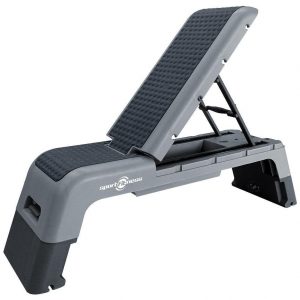Ejercicios y alimentos para ponerte en forma para las vacaciones
Establece tu rutina para estas vacaciones
Las vacaciones y fechas especiales pueden verse como un obstáculo para ser constantes con el entrenamiento y la buena alimentación. Por eso desde Tienda Sport Fitness queremos recomendarte algunos ejercicios que puedes realizar en cualquier parte y, también, alimentos con lo que puedes ponerte en forma.
Lo primero que debes hacer es establecer una rutina, puede ser fácil y corta, que te permita realizarla en cualquier lugar incluso si estás de viaje. Recuerda que en nuestra página puedes encontrar un kit viajero para realizar todas tus rutinas desde cualquier lugar.
Adicional a eso, empieza a incluir alimentos saludables que te complementen los entrenamientos; es normal que en vacaciones sea difícil evitar ciertas comidas, lo importante es que trates de ser lo más balanceado posible.
Ejercicios para ponerte en forma:
- Cardio Hit: puedes hacerlo de 15 minutos en los que combines Burpees, Jumping jacks y Escaladores. Esto acelera las pulsaciones lo que te permitirá mejorar tu condición física.
- Ejercicios isométricos: implementa circuitos de sentadillas, flexiones y abdominales. Puedes variar el número de repeticiones, la intensidad e implementar algunos elementos como bandas o pesas.
- Ejercicios de movilidad: estos ejercicios nos permiten mejorar nuestras articulaciones y evitar lesiones. Rutinas de yoga y estiramientos son el complemento perfecto.
Recuerda que no es necesario estar en un gimnasio para hacer una rutina, lo más relevante es contar con el equipamiento necesario para evitar lesiones y hacer tus rutinas más exigentes. En Tienda Sport Fitness te asesoramos para tu compra.
Alimentos para complementar tu ejercicio:
- Carbohidratos: si bien en exceso pueden ser malos, consumir uno o dos al día te brindan la energía necesaria para realizar rutinas de ejercicio exigentes.
- Proteínas magras: estas ayudan a reparar y formar el tejido muscular magro por lo cual es de suma importancia consumir al menos de 15 a 25 gramos al día. Una buena fuente de proteína es el huevo.
- Frutas y verduras: estas aportan vitaminas, sales minerales, antioxidantes y fibra. Son buenas para el sistema inmunológico y se recomienda que en un plato de comida la mitad sea solo de verduras.
- Agua: la hidratación es de vital importancia durante todo el día, en especial cuando entrenamos. Esto permite estar físicamente activo y digerir mejor los alimentos.
Ponerse en forma es una meta que requiere esforzarse cada día, ser constantes y sobre todo ser conscientes que no siempre tendremos la motivación, pero lo más importante es tener la disciplina. Desde Tienda Sport Fitness te acompañamos en estas vacaciones con todos nuestros equipos e implementos deportivos.
Nuestros destacados

Set De Movilidad 3 EN 1 – Sport Fitness 71465
Original price was: $118.795.$95.036Current price is: $95.036. IVA Comprar Ahora
Lazo Para Salto JR4317 – Sport Fitness 71588
Original price was: $63.398.$50.718Current price is: $50.718. IVA Comprar Ahora
Bicicleta Spinning Magnética Benevento – 70396
Original price was: $3.590.517.$2.872.413Current price is: $2.872.413. IVA Comprar Ahora





